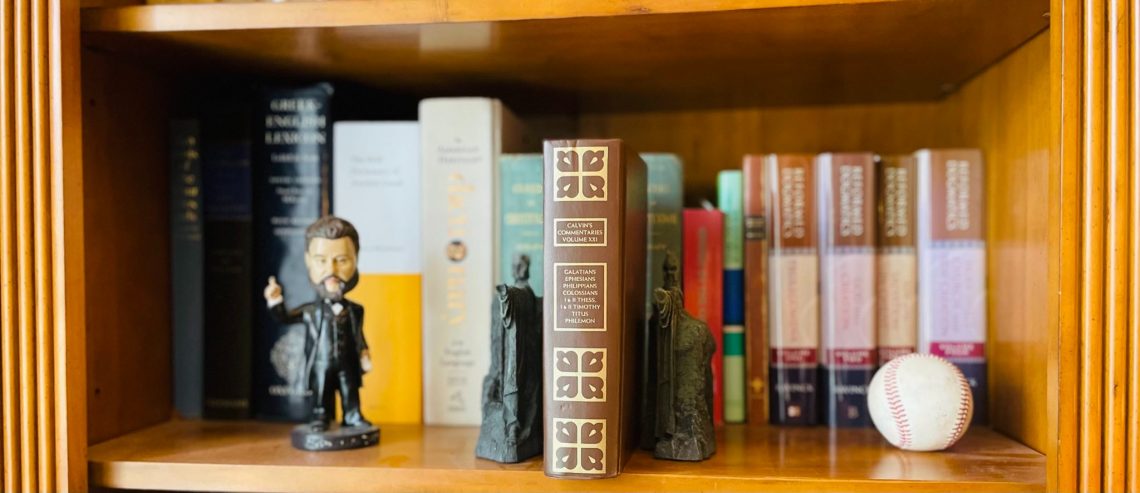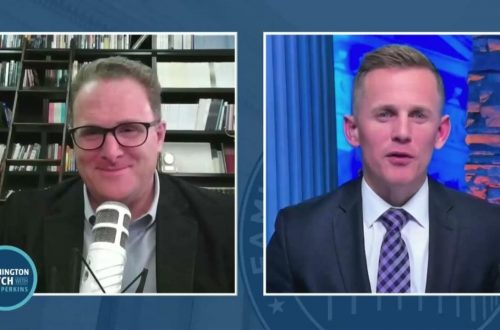John Calvin’s commentaries on Scripture are always so insightful and practical. Today I was reading his comments on 1 Timothy 5:19, which says this: “Do not receive an accusation against an elder except on the basis of two or three witnesses.” Calvin explains why it is so important for there to be no presumption of guilt but a presumption of innocence unless or until adequate evidence is brought forth to prove the charge against the elder.
Calvin also points out that Paul’s instructions for disciplining an elder are in fact the same as the Bible’s instructions for disciplining any member of the congregation. This high bar of proof is not merely for office holders. It is for every member of Christ’s church. No Christian is to be presumed guilty on the basis of a single accusation against him. On the contrary, for all members every charge must be established on the basis of two or three witnesses (Matthew 18:16). Calvin argues that this standard is “common to all” and that “God lays down, authoritatively, this law as applicable to all cases, that they shall be decided ‘by the mouth of two or three witnesses.'”
Paul singles out elders in 1 Timothy 5 not because their interests are more important than anyone else’s but because their office and work make them prime targets for false accusations. Nevertheless, when they do sin and refuse to repent, they are subject to the same discipline that any other lay Christian would be subject to. And so Paul commands, “maintain these principles without bias, doing nothing in a spirit of partiality” (1 Timothy 5:21). Justice and due process are owed to all, and no one gets special treatment because of their office or lack of it. Nor is anyone to get worse treatment because of their office or lack of it. God’s law provides the standard no matter who we are dealing with (Deuteronomy 19:17).
Calvin’s comments are below the jump.
After having commanded that salaries should be paid to pastors, he likewise instructs Timothy not to allow them to be assailed by calumnies, or loaded with any accusation but what is supported by sufficient proof. But it may be thought strange, that he represents, as peculiar to elders, a law which is common to all. God lays down, authoritatively, this law as applicable to all cases, that they shall be decided “by the mouth of two or three witnesses.” (Deut. 17:6; Matt. 18:16.) Why then does the Apostle protect elders alone by this privilege, as if it were peculiar to them, that their innocence shall be defended against false accusations?
I reply, this is a necessary remedy against the malice of men; for none are more liable to slanders and calumnies than godly teachers. Not only does it arise from the difficulty of their office, that sometimes they either sink under it, or stagger, or halt, or blunder, in consequence of which wicked men seize many occasions for finding fault with them; but there is this additional vexation, that, although they perform their duty correctly, so as not to commit any error whatever, they never escape a thousand censures. And this is the craftiness of Satan, to draw away the hearts of men from ministers, that instruction may gradually fall into contempt. Thus not only is wrong done to innocent persons, in having their reputation unjustly wounded, (which is exceedingly base in regard to those who hold so honourable a rank,) but the authority of the sacred doctrine of God is diminished.
And this is what Satan, as I have said, chiefly labours to accomplish; for not only is the saying of Plato true in this instance, that “the multitude are malicious, and envy those who are above them,” but the more earnestly any pastor strives to advance the kingdom of Christ, so much the more is he loaded with envy, and so much the fiercer are the assaults made on him. Not only so, but as soon as any charge against the ministers of the word has gone abroad, it is believed as fully as if they were already convicted. This is not merely owing to the higher degree of moral excellence which is demanded from them, but because almost all are tempted by Satan to excessive credulity, so that, without making any inquiry, they eagerly condemn their pastors, whose good name they ought rather to have defended.
On good grounds, therefore, Paul opposes so heinous iniquity, and forbids that elders shall be subjected to the slanders of wicked men till they have been convicted by sufficient proof. We need not wonder, therefore, if they whose duty it is to reprove the faults of all, to oppose the wicked desires of all, and to restrain by their severity every person whom they see going astray, have many enemies. What, then, will be the consequence, if we shall listen indiscriminately to all the slanders that are spread abroad concerning them?
Source: John Calvin, Commentaries on the Epistles to Timothy, Titus, and Philemon, trans. William Pringle, Calvin’s Commentaries 21 (Grand Rapids: Baker, 1999), 140–141.






